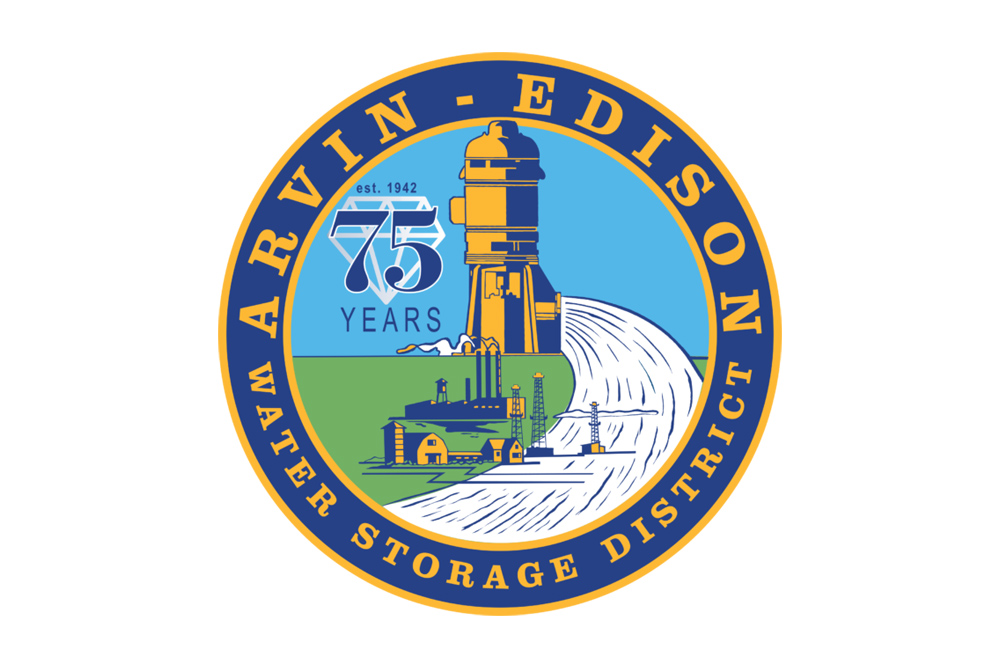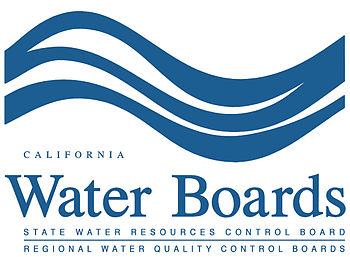The State Water Resources Control Board held a meeting on Zoom and YouTube on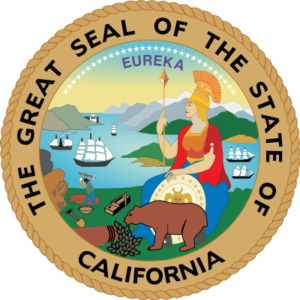 Tuesday, November 16, 2021. I tuned in at about 10:45am to catch the tail end of a report on water conservation. Board Member Laurel Firestone recommended including a gallons per day chart on the State Board website to show how efficient we already are or could be. Chief Deputy Eric Oppenheimer said that can be done. High water use isn’t a direct correlation to water use efficiency and he said a good tool is to measure at the system level. There were also comments from the public on conservation.
Tuesday, November 16, 2021. I tuned in at about 10:45am to catch the tail end of a report on water conservation. Board Member Laurel Firestone recommended including a gallons per day chart on the State Board website to show how efficient we already are or could be. Chief Deputy Eric Oppenheimer said that can be done. High water use isn’t a direct correlation to water use efficiency and he said a good tool is to measure at the system level. There were also comments from the public on conservation.
Racism isn’t Racist?
If you’re a regular reader of WaterWrights.net you may recall a report on the State Board’s efforts to pass a resolution, CONDEMNING RACISM, XENOPHOBIA, BIGOTRY, AND RACIAL INJUSTICE AND STRENGTHENING COMMITMENT TO RACIAL EQUITY, DIVERSITY, INCLUSION, ACCESS, AND ANTI-RACISM calling for racial equity as a consideration for decisions made by the board. Click here for report. Equity is part of Critical Race Theory. CRT comes from a university in pre-World War II Germany that had a collection of Marxists professors. They saw which side of the bread was buttered when the Nazi’s took power and skedaddled to an Ivy League university in America. One of the talking points of Marxism was economic disparity. That didn’t work out so well in the Land of the Free and home of the Brave. There is enough economic opportunity in the USA to thwart the commies. So now we have a revised version of communism that focuses on the difference in race instead of economics. The way Equity is being used is not at all like equality. This isn’t about everyone having the same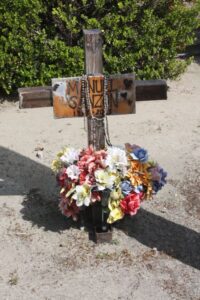 rules and laws applied. It is about everyone getting the same results. That is what is meant by equity. Your rights will be based on your race if it means “leveling the field.” A copy of a draft of the resolution can be seen here Draft State Board Racial Equity Resolution. The actual resolution voted on may have some revisions. Some folks have decided to buy into the idea, some folks haven’t.
rules and laws applied. It is about everyone getting the same results. That is what is meant by equity. Your rights will be based on your race if it means “leveling the field.” A copy of a draft of the resolution can be seen here Draft State Board Racial Equity Resolution. The actual resolution voted on may have some revisions. Some folks have decided to buy into the idea, some folks haven’t.
The public hearing I reported on in July had no opposing voices. At 11:12am State Board Chair Joaquin Esquival called a 10-minute break before taking up Item Five on the agenda – Racial Equity. Esquival commented he’s very proud of this item. The State Board website has an August 2020 quote by Executive Officer Eileen Sobeck, “There could not be a more critical challenge facing us at this time than the challenge of achieving racial equity.” See here. We’re in a drought and the State Board’s priorities are aligned with Marxist philosophy?
At 11:21am Esquival came back and said this item will have to be divided in half by lunch. He said the subject of race isn’t an easy one for anyone. He said race can be easily criticized. He said he understands he comes with his own biases and has to humble himself. He said there are federal resources that can help with the disparity that has grown generation by generation. He said this has taken a great deal of discussion and especially listening.
Sobeck said she acknowledges everything Esquival said and thanked everyone for the hard work and the collegial journey that had to be made to get here.
Taran Sahota, an environmental scientist from Region Five gave the presentation. She said both the government team and the public were consulted on this issue. She said the resolution was drafted with BIPOC in mind. That’s black, indigenous and people of color. She said BIPOCs have the worst water in the state and race isn’t a consideration for the State Board. She said the State Board has to acknowledge White Supremacy and racial bias as a condition. She said equity helps understand individual, interpersonal, institutional, structural racism is systemic racism. The greatest indicator of water pollution in a neighborhood is race. Only 10 percent of white people live in the neighborhoods with the most polluted water. She also put up a chart showing how few BIPOCs serve in management positions at the State Board. She said 68 percent of the management is white and they don’t have the background to represent BIPOCs.
Next Brittany Evans spoke saying there were listening sessions conducted for the public and the employees. I can tell you the turnout was very low and the public was overwhelmingly represented by NGOs. The State Board now hosts a monthly luncheon for employees to discuss racial equity.
Three representatives from Regional Boards from, surprise, surprise the state’s major urban areas, Los Angeles, San Francisco and San Diego spoke about the Regional Board’s systemic racism.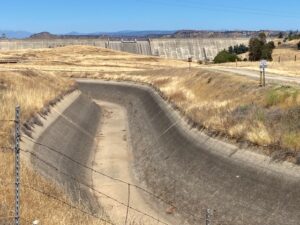
Rene Purdy of Los Angeles said there is a six part strategic approach to implement racial equity taught by a college professor whose name I didn’t catch. But board employees can now appear at college classes to discuss their experiences. Purdy’s slide show took it a little further than just racial equity and listed environmental justice. Words are very important and adding a prefix to justice perverts the term. I’ve written on this many times.
Lisa Horowitz McCann of San Francisco was next. She said the San Francisco Board is prioritizing cleanups in the communities with higher BIPOC residents. They are working in Oakland and Richmond as disadvantaged communities. They’ve also been celebrating minority holidays and have a book club. There is an equity advisory team to act as a resource for others without as much awareness. GARE, the Governmental Alliance on Race & Equity, a group out of UC Berkeley has been providing staff training.
From San Diego Dave Gibson showed a photo of a clean up in the waters of San Diego Bay shipyards. He said this is an example of environmental justice. He didn’t say how and as far as I could see the photo showed multimillion dollar ships, not housing. But he did show a map that had a redline that he said showed the toxic water problems located next to disadvantaged communities. He talked about how some parts of San Diego Bay near the more financially prosperous neighborhood has better water quality. Again, I didn’t get the correlation between sea water and freshwater quality. But I don’t have experience with the ocean’s impact on water quality beyond seeping inland into the aquifer. The San Diego board also includes implicit bias education for employees and holds environmental justice town hall meetings. He thinks that was valuable and made good connections. He said staff has combed their archives to find pollution left in place that could create toxic fumes, I believe, that could enter homes and businesses. He said his board will adopt the today’s resolution if the State Board does so, as early as February.
Esquival said there are nine regional boards and he is impressed by the work of the regional boards. There were no comments from the board members.
Drafting
Evans explained a draft of the resolution was given to the State Board in July of 2021 and comments were taken into consideration. An annotated bibliography was provided to maintain transparency to the public. I will note there wasn’t one available until I threatened a public records act. I will also say there was one attorney working for the State Board who was very helpful and willing to have a discussion with me. It took a while to get any help as the State Board’s public access office was AWOL for the longest time. Evans explained the murder of BIPOCs by whites is part of the systemic racism that needs to be corrected.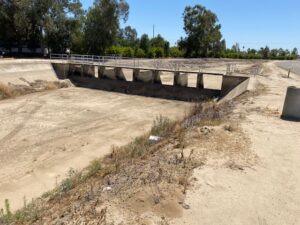
Tien Tran was next and she said there have been changes to the draft and there were more than 400 comments. She said many of the comments were supportive of mentioning White Supremacy and the Black Lives Matter movement. She said a common theme was to include an advisory group for stakeholders. There were many requests to include language about how Native Americans have been massacred by whites. There were many requests to specifically mention George Floyd in the resolution. There were requests to include the need for more parks in BIPOC communities.
Tran said there were comments against the resolution stating it is historically inaccurate, unrelated to the State Board’s primary work and could be used to alter water rights and hiring practices. Other noted there are already laws in California against anti-discrimination and not everyone’s BIPOC experiences should be lumped together. Tran said there were many concerns about changes to the water rights system and that the State Board will hire based on racial quotas instead of merit.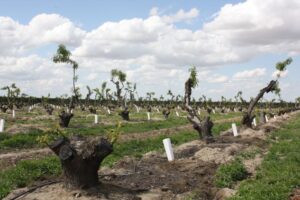
She said staff has made edits that included strengthening climate change’s greater impact on BIPOC communities. There was a call for the Water Board to be accountable for its previous actions and build more trust with communities. There was also a call for inclusion of the human right to water.
There were comments and non-aligned comments that didn’t make the edit as they went beyond the Water Board’s mission.
Evans said the next step is the action plan and the story map project will be posted as soon as they are complete. She said a team of volunteers from within and without the agency gathered to analysis State Board projects through a racial equity lens. She said the equity action team is asking the Board to adopt the racial equity resolution.
Esquival said he really appreciates the efforts, time and commitment from the team. Firestone said how proud and thankful she is to be part of this work. She told staff she appreciated the presentation by the regional boards. She wants to get quarterly updates on State and Regional programs. She said the State Board’s future actions and decision must be dismantling systemic racism and advance racial equity. She wants to review how funding has been made in the past few years. She wants to see this included in drought action plans. Esquival said every bit as much as climate change, racial equity impacts us all.
be dismantling systemic racism and advance racial equity. She wants to review how funding has been made in the past few years. She wants to see this included in drought action plans. Esquival said every bit as much as climate change, racial equity impacts us all.
Public Comments
Merry Kate Lowery said she is a Native American on the Klamath River and this is a time of healing and change. So, she’s excited about this resolution. She said we should not see any more green lawns in California. She said there were years with very few fish in the rivers and the elders were crying because they thought the world was ending. She said men unable to protect their families due to white supremacy can now hope to fish and provide for their families. She spoke awhile about dams being removed from the Klamath River and she has hope.
Natelie Gracia of the Leadership Council for Justice & Accountability spoke next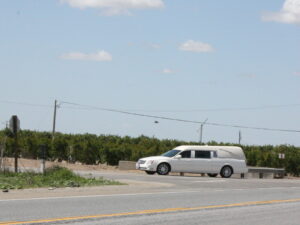 and thanked the Board for recognizing the inequities visited on the BIPOC community. She said specifically agriculture’s pumping of groundwater by white farmers has to be addressed as it harms BIPOC communities. She wants to see the State Board force the Regional Boards to adopt this resolution.
and thanked the Board for recognizing the inequities visited on the BIPOC community. She said specifically agriculture’s pumping of groundwater by white farmers has to be addressed as it harms BIPOC communities. She wants to see the State Board force the Regional Boards to adopt this resolution.
Dogukan Ucan from the UC Davis law school said this resolution does address the historical inequity but doesn’t do anything without an action plan. He said there is a clear underrepresentation of Disadvantaged Communities-DACs and BIPOCs in Groundwater Sustainability Agencies. He said the State Board needs to address this human rights violation. The resolution isn’t enough, it’s too slow. He said under SGMA if the people who have been historically privileged made the determination of what is sustainable this is just kicking the can down the road. He said these GSAs need to be threatened with punishment. Evidently Ucan didn’t know the Leadership Council has received thousands of dollars of taxpayer funded Prop One grant money to do SGMA outreach to the DACs.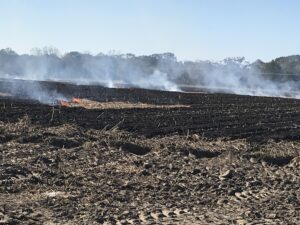
Danny Merkley, California Farm Bureau Federation spoke next and said he’s asking for agriculture to have a place at the stakeholder table as the Action Plan is developed. At least someone from ag spoke up this time. Before Merkley’s comment I haven’t found any evidence of anyone opposing adding CRT to water right decisions at any point of this process beyond the written comments.
Regina Chichizola said she had a lot of notes. I don’t know who she was representing but she said the fires have kept her busy. She said water has always been used as a weapon against Native people. The water right system is still being used against them. Esquival said the State Board isn’t trying to limit agreements to just tribes with treaties. Firestone said she’d like to see wording adjusted in the resolution to reflect that. Board Member Sean McGuire said he’d like to see reports and input from the Regional Boards as things progress.
Barbara Barrigan Parrilla representing Restore the Delta started her comment saying her comments were not politically charged. She said the current water rights have enacted genocide on Native Americans and BIPOCs. She said there has to be justice for the Delta and water exported never seems to reach the drinking water needs of disadvantaged communities.
Dean Tonenna said he is with a tribe from near Mono Lake. He said racial laws in the past have had a devastating impact on his people as they have lost land and water. His tribe isn’t federally recognized and the few folks who built cabins on the land have been labeled squatters. He said the water level of Mono Lake continues to decrease as it exposes hazardous dust to the area while water is being sent to Los Angeles. He said his people feel powerless to address this and hopes this resolution will be a new start.
labeled squatters. He said the water level of Mono Lake continues to decrease as it exposes hazardous dust to the area while water is being sent to Los Angeles. He said his people feel powerless to address this and hopes this resolution will be a new start.
Jacob Villagomez, with Citrus Mutual said although the resolution is a step in a direction it lacks a mention of recharge as a needed tool for DACs to become sustainable. Vice Chair Doreen D’Adamo said she’d like to see this issue included in the resolution as well.
A young man named Michael Rodriquez took up our time reciting a poem he wrote about water using an accent that sounded a lot like a southern black man, which I found offensive. In his poem he said the water in Delano he had access to was crap but the other, better water went to Starbucks or something. He then went on about Tulare Lake draining from San Francisco Bay. He bowed at the end. Then he said having a dry Kern River riverbed is a racist issue and environmental genocide. He said affordable drinking water and watersheds needs to be included in the resolution. All in all it was a bizarre presentation. Esquival thanked him for his poem and told him it was much appreciated.
Cristal Gonzalez on behalf of Clean Water Action said she liked the poem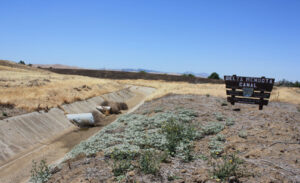 presentation. She said naming White Supremacy is a big deal to undoing the structural framework that has excluded the BIPOC community. She, like many of the commenters was frustrated by having to wait for an action plan. She said she hopes the Board will go forward before a plan is devised.
presentation. She said naming White Supremacy is a big deal to undoing the structural framework that has excluded the BIPOC community. She, like many of the commenters was frustrated by having to wait for an action plan. She said she hopes the Board will go forward before a plan is devised.
Deidre Hathor, an artist in Bakersfield said she grew up in Pittsburg and asked if you could imagine no water in its rivers. She went to school in Mississippi and asked if you could image there being no water in the Mississippi River. She said lack of water in the Kern River is a racial equity issue. She said God placed a river there. But the children don’t get a chance to fish or swim. She said it is impacting the BIPOC community. Maybe she hasn’t been in Bakersfield long enough to have heard that Merle Haggard song about swimming in the Kern River.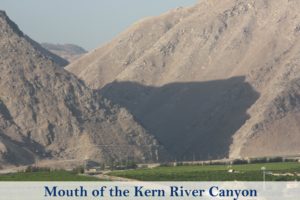
Delia Dominquez spoke saying she is a Native American from the San Joaquin Valley and lives in Bakersfield. Her audio quality was poor making it difficult to understand most of what she said. I believe her story was sincere and compelling but it was so disjointed audio-wise I won’t try to convey it here out of respect to her and her story. I could hear her say she wants the Kern River to flow freely.
Rose Nelson, educator with the Mono Lake indigenous community said BIPOCs are subject to unfair water conditions. Climate change is no longer knocking on the door but has moved in. She said the tribal knowledge has to replace traditional white knowledge. She really came across as one of those well intentioned white ladies who think the Indians need their help. I can appreciate her desire to help.
Eric Orellana of Community Water Center said he wants to add his support to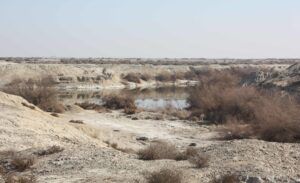 those who want more flows in the Kern River. He said this resolution goes beyond what many other states have done to address the biased against BIPOCs and low income communities of color. He said the finding of this resolution show how California has committed genocide and enhanced White Power and continues to do so. He said Latino communities descended from Native people are subjected to working for white farmers who play them the lowest wages they possible can.
those who want more flows in the Kern River. He said this resolution goes beyond what many other states have done to address the biased against BIPOCs and low income communities of color. He said the finding of this resolution show how California has committed genocide and enhanced White Power and continues to do so. He said Latino communities descended from Native people are subjected to working for white farmers who play them the lowest wages they possible can.
Board Comments
That was the end of public comments and Esquival asked all the board members to weigh in with suggested changes before taking a half hour lunch. Board Member Nicole Morgan had a request to add healthy watersheds to the resolution’s language. D’Adamo said there should be an option to include storage and groundwater recharge. With that they took lunch at 1:35pm.
At 2:22pm the meeting came back and Sobeck reported Claire Wagner was instrumental in putting together the actual words. Wagner reported a clause to include recharge was included. Another change was to include federal reserved rights for tribes. Multi benefit water quality projects, sustained fishing and a periodic updates from the Regional Boards were included as well. Esquival asked for comments and there were none so he called for the vote.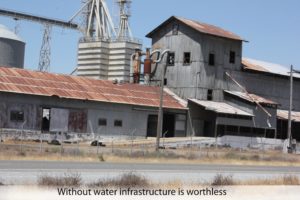
Firestone then said she had comments. She has a lot of comments, like almost every time there is an opportunity to say something she does. She also giggles a lot when she talks and it reminds one of Vice President Kamala Harris. She said the largest determination of water outcomes is White Supremacy and how big a deal that is. She said if the State Board can’t talk about racism it can’t address it. She said it is uncomfortable but you have to lean into the discomfort. She said she’s worked with community after community that have been separated and segregated from white communities and she added they are mostly communities of color. She they have been denied water infrastructure “kind of like redlining” by counties. I suspect that happens. No word on whether these communities had any financial means to pay for such infrastructure no matter what color their skin might be. Firestone wants to see some near term actions before the Action Plan is completed, although she said she wasn’t asking for this to be done today. She said resources have to be provided for a community. She said holding a meeting, even in Spanish won’t bring about any change on its own. She wants to see financial and technical assistance across the region. She suggested more testing and inclusion in state data bases. She wants funding for community training in water matters. She said not to wait for a new funding source. She said she thinks there are sources already available for funding. She said developing a racial equity lens and tools to help each of “us” to measure and identify how our biases and relationships are getting in the way of addressing racial disparity. She ended by saying how proud she is of this effort.
although she said she wasn’t asking for this to be done today. She said resources have to be provided for a community. She said holding a meeting, even in Spanish won’t bring about any change on its own. She wants to see financial and technical assistance across the region. She suggested more testing and inclusion in state data bases. She wants funding for community training in water matters. She said not to wait for a new funding source. She said she thinks there are sources already available for funding. She said developing a racial equity lens and tools to help each of “us” to measure and identify how our biases and relationships are getting in the way of addressing racial disparity. She ended by saying how proud she is of this effort.
Esquival said this connection to the data work will help with assessments of needs and seeing how the specific data information can be used as a bridge. He said turning the anxiety of racial equity and climate change into action is done with data.
Morgan thanked the staff for their work and said she is in support of the resolution.
D’Adamo thanked the other Board Members for their comments. She said she is concerned about moving forward too slowly on some parts of this. The more challenging parts need good stakeholder engagement and commitment. She said she had a number of good discussions with the racial equity team.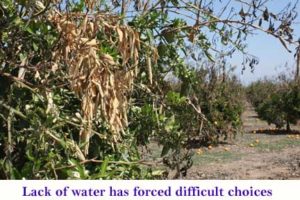
Maguire said it is difficult to follow the other comments but the last year and a half since the George Floyd experience has taught him how much he regrets his previous ignorance. He said the racial inequity is hardwired into the system and it’s become ingrained in his awareness. He said he could spend the rest of the day coming up with ideas on improving racial equity.
Morgan moved and Maguire seconded adopting the resolution at 2:49pm. One thing about Esquival, the man is unfailingly polite. He gave a speech about how hard it is to address these racial issues and thanked staff. The board voted unanimously to pass the resolution. Esquival said this is the most critical vote ever taken as long as he’s been on the board.
There were board member reports and an executive director report but that would have to be in another report. And so we’ll see what awaits the water rights holders in California as the lens of racial equity instead of equality is brought to bear by the unelected State Water Resources Control Board and its staff.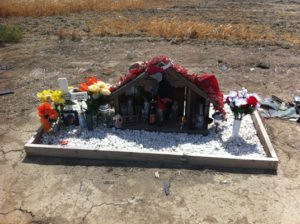
DISCLAIMER OF RESPONSIBILITY; Waterwrights strives to provide its clients with the most complete, up-to-date, and accurate information available. Nevertheless, Waterwrights does not serve as a guarantor of the accuracy or completeness of the information provided, and specifically disclaims any and all responsibility for information that is not accurate, up-to-date, or complete. Waterwrights’ clients therefore rely on the accuracy, completeness and timeliness of information from Waterwrights entirely at their own risk. The opinions expressed in this report are those of the author and do not represent any advertisers or third parties.
ALL RIGHTS RESERVED. Copyright 2021 by WaterWrights.net/DAW




